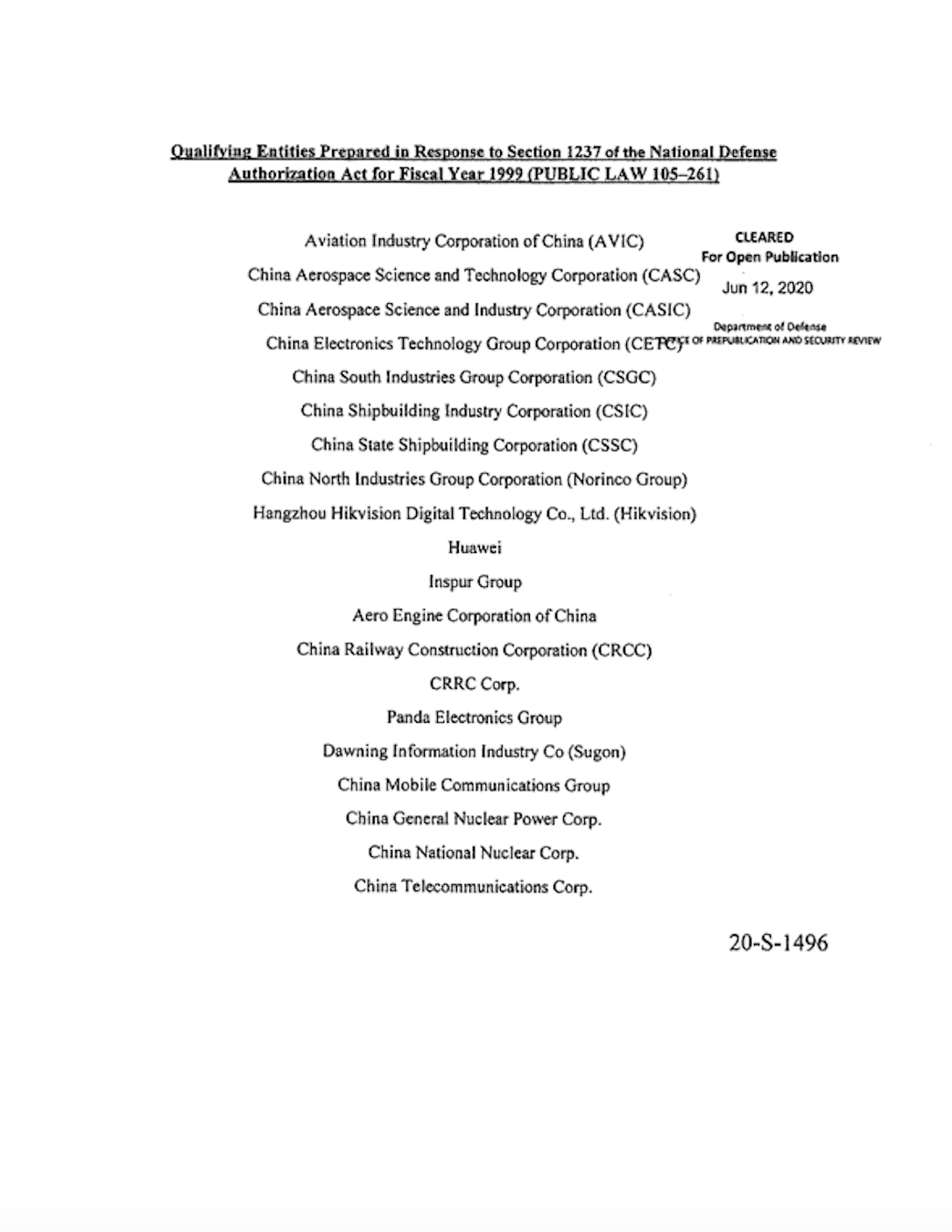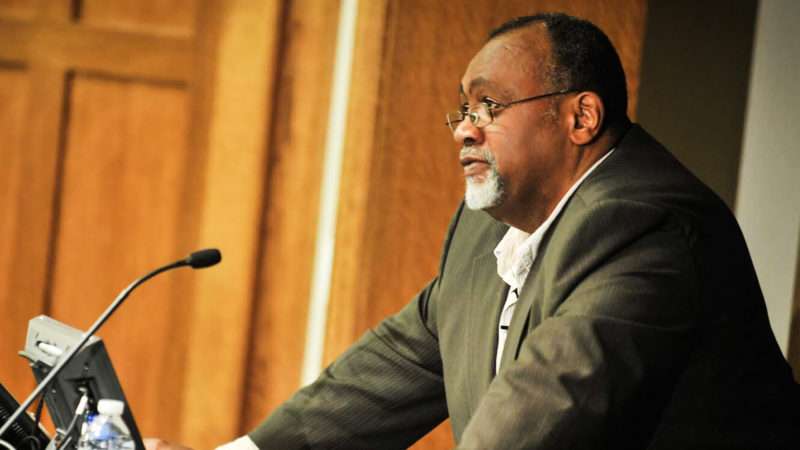From today’s en banc majority opinion of the Florida Court of Appeal (4th Dist.) in Logue v. Book, by Judge Mark W. Klingensmith, joined by Chief Judge Spencer D. Levine and Judges Robert M. Gross, Dorian K. Damoorgian, Jonathan D. Gerber, Burton C. Conner, Alan O. Forst & Jeffrey T. Kuntz—first, the general First Amendment reasoning:
While the record indicates that [State Senator Lauren Frances Book] was irritated by [sex offender rights activist Derek Warren Logue]’s actions, the Constitution protects the right of the political irritant to voice his opinions as much as it protects any citizen’s right to do so…. “In a representative democracy … the[] branches of government act on behalf of the people and, to a very large extent, the whole concept of representation depends upon the ability of the people to make their wishes known to their representatives.” … Though [Book’s] frustration is understandable, expressions of opposing views, even as insults, are not the same as harassment or threats….
Publicly expressing anger toward an elected official is not a basis for entry of an injunction. In public debate, elected officials must tolerate insulting remarks—even angry, outrageous speech—to provide breathing room for the First Amendment. See Fox v. Hamptons at Metrowest Condo. Ass’n (Fla. 5th DCA 2017).... [Logue]’s actions and comments, while distasteful, are precisely the kind of “vehement, caustic, and … unpleasantly sharp” political speech which has historically been protected by the First Amendment and which fall outside the Florida harassment statutes….
Viewing someone as a “threat” does not mean the person can be subject to an injunction as if he or she actually made one. Whether [Book] has understandable concerns is not the debate. The standard for obtaining an injunction is not lessened in cases involving delicate complainants, nor is every statement or action that causes a listener fear, discomfort, embarrassment, annoyance or offense transformed as a result into a “threat” providing the basis for an injunction. The law requires that before an injunction such as this can be granted there must be legal, articulable acts of harassment, stalking, or credible threats pursuant to section 784.048. Here, [Logue]’s actions do not rise to that level.
Clearly, [Logue] seeks to bring about political and social policy change. It is immaterial whether he enjoys significant public support for his positions. While his methods may be bombastic and extreme— particularly his many unfortunate and insulting references to [Book] and her father—this type of political hyperbole does not take the communication out of the protections of the First Amendment….
As tempting as it might be to force some civility into the matter by stanching [Logue]’s speech against [Book] with a court order, to do so would ignore the protections of the First Amendment and the wording of the stalking statute. There was no evidence presented to the trial court that [Logue] incited action by urging people to threaten harm to [Book] or her family. Claims of threatening speech or harassing action are actionable if the speaker threatens, harasses or intimidates, and intended targets would reasonably perceive that intent. Merely posting public information, or potentially embarrassing and annoying content, without more, is not conduct within the stalking statute and does not entitle [Book] to an injunction.
Rather than being harassing or threatening, [Logue]’s online speech was more of a rant, that is, a hyperbolic rhetorical response to the opposing views of a political actor. There is a real danger, from a First Amendment perspective, that questionable speech by speakers from sub-communities perceived as deviant could become hyper-critiqued, and over-sanctioned. But in analyzing both intent and effect, context matters…
No one likes being the target of the kind of disgusting invective hurled by [Logue] against [Book]. And given [Book]’s personal history, she may indeed have a heightened sensitivity to the content of these posts. But the Constitution requires that public figures, including both elected and non-elected officials, have thicker skin in their response to insults or republication of unfavorable news articles by political gadflies when they choose—voluntarily—to enter the public arena….
The injunction in this case prohibited [Logue] from having direct or indirect contact with [Book] “by mail, email, fax, telephone, through another person, or in any other manner, including electronic means or use of social media.” An injunction directed to speech is a classic example of prior restraint on speech triggering First Amendment concerns. Because the injunction seeks to prohibit such speech, the overbroad nature of the injunction prohibits [Logue] from posting anything related to [Book], even statements that would unquestionably constitute pure political speech.
The facts and procedural history:
The appellee Lauren Frances Book … is a public figure—an elected official occupying the office of Florida State Senator. In addition to her duties in public office, she also runs a non-profit organization called “Lauren’s Kids” whose purpose is … to assist survivors of sexual abuse and to prevent its occurrence. In both roles, she has been a longtime public advocate for laws that support and maintain sex offender registries, and place residency restrictions on convicted offenders.
Respondent [Derek Warren Logue] is also a public figure—the co-founder of what is described as the Anti-Registry Movement which opposes sex offender laws. {In 2001, an Alabama court convicted [Logue] of improper relations with a minor.} In that capacity, he travels to, organizes, and participates in various demonstrations and counter-demonstrations around the nation opposing the type of sex offender laws for which [Book] advocates. In furtherance of this role, he maintains an online presence using both Facebook and Twitter accounts, as well as internet websites. One website relevant to this case is titled, “Floridians for Freedom: Ron and Lauren Book Exposed.” Ron Book is [Book]’s father [and a powerful Florida lobbyist -EV].
Lauren Book got an injunction against Logue, based on his supposedly harassing her, citing “three primary instances of offending conduct as ‘threatening’ to her: (1) [Logue]’s protest at the end of a march in Tallahassee; (2) his appearance and conduct at a New York film festival; and (3) his social media postings on his website, blog, and other social media platforms.”
The court ordered [Logue] to have no contact with [Book] either directly or through a third party, or with “anyone connected with [Book]’s employment or school to inquire about [Book] or to send any messages to [Book]” and to refrain from “publish[ing] any statement threatening [Book].” The trial court also ordered [Logue] “not go to, in, or within 500 feet of [Book]’s residence or place of employment,” “100 feet of [Book]’s vehicle,” or “1,000 feet of [Book].” …
The injunction was issued under a Florida law that “allows an injunction against stalking, including cyberstalking”; to get such an injunction, a petitioner has to show, among other things, (1) a “credible threat” “which places … the target … in reasonable fear for his or her safety or the safety of his or her family members or individuals closely associated with the person, (2) that the respondent’s actions “cause[] substantial emotional distress” to the target, and that (3) they “serve[] no legitimate purpose.”
All the judges on the en banc court agreed that the Tallahassee protest and the New York firm festival incident couldn’t justify the injunction:
The First Instance—The Tallahassee Protest
[Book] cited to [Logue]’s presence at what was, by all accounts, a peaceful demonstration in Tallahassee during a 2015 event called the “Walk in My Shoes.” This event predated [Book]’s election to public office. The undisputed evidence presented at the injunction hearing showed that [Logue] attended and had also encouraged others to join in his protest against the march. During the event, [Logue] stood at the side of the road across the street from the State Capitol holding a three- by-three-foot handwritten sign protesting [Book]’s advocacy of sex offender registration laws. [Logue]’s protest also included a diorama of a homeless camp and a commode chair bearing the title, “King Ron’s Throne,” a reference to [Book]’s father.
By all accounts, the protest included no threats or threatening activity whatsoever. Law enforcement had been notified of the protest in advance, and there were no untoward incidents reported regarding [Logue]’s conduct. While this event may have been displeasing or even embarrassing to [Book], there is nothing from the testimony presented to the court about [Logue]’s activities at this protest that would in any way support the issuance of an injunction.
The Second Instance—The Film Festival
[Book] also recounted an incident that occurred at the Tribeca Film Festival in 2016 during a screening of the film, “The Untouchables”—a documentary film about sex offenders and the use of registries. The film includes interviews and footage of [Book], [Book]’s father, and [Logue]. The evidence at the hearing showed that [Book] knew in advance from a variety of sources that [Logue] would be there and chose to attend anyway, albeit, with security in place. The undisputed testimony revealed that [Logue] sat several rows behind [Book] during the movie. No interaction occurred between them whatsoever either before or during the film.
At the end of the movie, [Book] walked to the front of the theater to take questions. After several audience members were given the opportunity to ask questions, the microphone was given to [Logue] who asked [Book] a question along the lines of “how can you sit there and talk about how people on the registry don’t deserve a second chance when your father … is a convicted criminal and he got [a] second chance?” [This apparently referred to Ron Book’s past conviction for illegal campaign contributions. -EV] Taking the encounter in the light most favorable to [Book], [Logue] was “aggressive and shouting” and pointed his finger as he asked the question. [Book] answered the question and, following the interaction, exited the theater.
At no time did [Logue] attempt to approach [Book] or initiate any other contact with her. Witnesses confirmed that [Logue] never left his seat in the auditorium before he was handed the microphone to ask his question, nor did he ever approach [Book] in any way. [Logue] was not ejected from the theater and did not follow [Book] outside. As with the first incident, there is nothing about this interaction that would support the issuance of an injunction….
Considering the various events alleged, we cannot say they were so devoid of a legitimate purpose as to make them actionable under the statute. Each party in this case is a vocal advocate for opposite positions on sex offender laws. Despite [Book]’s complaints, [Logue]’s Tallahassee protest was by all accounts peaceful—even if unpleasant to [Book] in its scope and message—and non-violent. See § 784.048(1)(b), Fla. Stat. (2016) (stating that “constitutionally protected activity such as picketing or other organized protests” are specifically exempted from being included in the definition of “course of conduct.”). The parties’ opposing viewpoints on such laws are widely debated within what Justice Oliver Wendell Holmes once described as the “free trade in ideas.” True, one side of this debate has far greater public support than the other, but that does not make [Logue]’s advocacy illegitimate.
As John Stuart Mill wrote, “even if the world is in the right, it is always probable that dissentients have something worth hearing to say for themselves, and that truth would lose something by their silence.” In short, [Logue]’s protest served a legitimate purpose even though [Book] found it objectionable.
Like the Tallahassee protest, [Logue]’s appearance at the film festival also had a legitimate purpose. While [Logue]’s presence may have made [Book] uncomfortable, he was well within his rights to attend and to express his opinion on the film’s subject matter—even if it was done by posing a snide and uncomfortably worded question to [Book]. [Logue] made no threats nor any threatening gestures toward her. As a result, [Logue] had the same right to express his views in this public forum as if he had held up a poster complaining about a business on a public sidewalk outside of that establishment.
But as to Logue’s web site and social media posts, the majority and three dissenting judges disagreed. Here are the facts:
[Book] highlighted certain content found on [Logue]’s “Ron and Lauren Book Exposed” website as well as other social media platforms as cause for concern. One is a picture of [Book]’s home along with her address posted on [Logue]’s website. The second is a video for a song containing an obscene title, with lyrics that are “Not Safe For Work” posted on his Twitter page. The third is a cartoon depicting a headstone with a vulgar insult (undoubtedly referring to [Book]) and the phrase, “Died of Natural Causes.”
[Logue]’s website is essentially a blog that primarily republishes news articles about [Book] and her father, detailing what [Logue] describes as “their questionable activity.” As a result, most of the website’s content is culled from various third-party sources and contains information published in other media. It is undisputed that [Logue] never directly communicated with [Book] about any of the posts, nor did he ever send them to her or any of her associates.
According to one witness who testified at the injunction hearing, [Book] and her group only learned of the posts from third-parties, and became concerned because “it seemed to be the language was maybe more inflammatory and very opinion based, using language that was … kind of angry or derogative, insulting, personally insulting in addition to being just kind of a disagreement of opinions and ideas.” Even in the light most favorable to [Book]’s view of the content and assuming that description to be accurate, none of the posts are sufficient to support an injunction, because none of them constitute either a threat or harassment under the cyberstalking statute.
The picture of [Book]’s home placed on [Logue]’s website was a Google snapshot of the structure found at the address listed in the public records as belonging to “Lauren’s Kids,” the advocacy group and political action committee (PAC) founded and operated by [Book]. This fact was revealed to the court at the injunction hearing. It was also undisputed that all the information posted about the house, including its address, purchase price, and photo, was obtained entirely from publicly accessible records. [Logue] violated no privacy laws or other confidentiality restrictions by republishing that information.
[A]lthough the posting of the vulgar song may have been directed at [Book] and was certainly intended to be insulting, it was not credibly or objectively threatening. Regardless, injunctions are not available to stop someone from uttering insults or falsehoods. See, e.g., Concerned Citizens for Judicial Fairness, Inc. v. Yacucci (Fla. 4th DCA 2014); Vrasic v. Leibel (Fla. 4th DCA 2013) (holding that an injunction remedy is not available to prohibit defamatory or libelous statements). One reason for this is that there is an adequate remedy at law: an action for damages….
The third instance cited by [Book] as support for the injunction, the vulgar cartoon, is similarly insulting to [Book] as is the song. However, it is also not credibly or objectively threatening. In fact, when viewed in context and in consideration of what the tombstone in the cartoon actually says (“Died of Natural Causes”), the post negates any implication of violence and appears to be nothing more than an intense expression of antipathy toward [Book]. The wording is no more a threat against her than if it said, “Died by Falling Meteor.” Merely wishing someone ill health in a public forum, without more, cannot serve as the legal basis for an injunction….
[Moreover,] a finding of “no legitimate purpose” to a given action … must … be evidenced by a complete lack of usefulness or utility.
As for [Logue] putting information about [Book]’s home on his website, in light of the political activities being conducted at this location, his posting of this public information also had a legitimate purpose which was entirely within the bounds of lawful public debate. The fact that the address of [Book]’s PAC also doubles as her home address is irrelevant. Unlike a private citizen who might ordinarily take steps to maintain their privacy, [Book] voluntarily placed the location of her home into the ambit of public discourse by operating her PAC from it—one that [Logue] avers (whether accurately or not) earns more than $1 million a year from contributors that include private prison companies, tobacco companies, and beer lobbyists. [Logue]’s post also included information supporting his allegation that [Book] draws a substantial salary from the PAC. Therefore, reporting and publicizing where [Book]’s PAC is headquartered, and information about how it operates, serves a valid public interest.
[Logue] did not drive by [Book]’s home, take a picture of her private residence, and then disseminate that information. [Book]’s home address as an elected official is a matter of public record for the purposes of validating her residency. Additionally, [Book] chose to use her home for business and politics. While she is certainly free to do so, she cannot then obtain an injunction against someone who elects to further publicize that widely available information. [Logue] did not unjustifiably expose her private residence address to the public as [Book] contends; he merely republished the corporate address of [Book]’s PAC along with other information about it culled from public disclosures. See Palm Beach Newspapers, LLC (Fla. 4th DCA 2016) (“Where matters of public concern are involved, privacy interests give way to the First Amendment right to publish lawfully obtained, truthful information about such matters.”).
Unless [Book]’s home address was otherwise private or confidential, and it was not, her actions conducting her public advocacy from the residence placed it well into the public domain. When [Book] chose to have her non-confidential home address double as her business address, thereby voluntarily combining certain aspects of her private life with her public one, she lost the ability to claim a concurrent privacy interest in the areas that overlapped. Therefore, [Logue] had the constitutional right to republish that unprotected information….
The dissenting judges—Judge Melanie G. May, joined by Judges Martha C. Warner & Cory J. Ciklin—disagreed as to Logue’s social media postings:
[Logue] posted [Book]’s address and a picture of her home on a website he entitled “Ron and Lauren Book Exposed.” He posted a video of a song containing an obscene title, with lyrics that include: “I am going to ‘f up your face'”, and “[y]ou maniac, gonna get you back.” He posted a cartoon depicting a headstone with three lines—”R.I.P.,” “Annoying C ,” and “Died of Natural Causes.” He then tweeted about the song. This was a pattern of conduct composed of a series of acts over a period of time that evidenced a continuity of purpose—harassment of [Book].
The majority suggests [Logue]’s “rants” were simply vulgar expressions that he is entitled to make under the First Amendment. We disagree. When such rants are posted on social media, they take on a more global reach. In short, [Book] proved [Logue] willfully, maliciously, and repeatedly harassed her.
The Rants Served No Legitimate Purpose
Nevertheless, the majority suggests that because [Book]’s home and address were obtained from public sources that somehow makes their posting on [Logue]’s website immune from consideration as a type of harassment. Of course, the majority cites no authority for that proposition. While [Book] chose to use her home address for a PAC, she did not choose to have it posted on a website dedicated to sex offenders.
[Logue]’s multiple vulgar postings and tweets also served no legitimate purpose. In them, he did not advocate against tough sex offender laws. Instead he engaged in name-calling, vulgar language, and disclosure of [Book]’s home and address for those who visited his website to see. There was no legitimate purpose to them. They were meant to harass [Book] and occurred on multiple occasions. While his advocacy against restrictive legislation may serve a legitimate purpose, his vulgar, demeaning postings do not. His advocacy does not give him license to harass [Book].
The majority then suggests there was no evidence that [Logue] incited action by urging people to threaten harm to [Book] or her family. That may be true, but the statute doesn’t require such evidence. Must we wait until someone commits some violent act before our system can protect its citizens? Haven’t we witnessed enough tragedies to know that our failure to address precursors of violence often leads to a more egregious tragedy?
Today we live in a culture where social media postings, like those involved here, have led people to lash out and wreak havoc on our children, families, friends, and communities. Social media posts, which direct attention and can motivate others to act, are threatening and dangerous. In fact, perhaps more so as the subject of the postings has no way of knowing who reads or may act upon them.
Indeed, we have witnessed a man arrested for sending pipe bombs to several legislators allegedly as a result of social media postings that inspired him. International terrorists have been radicalized through social media. And, our elections have now fallen prey to manipulated social media.
[Logue]’s “rants” served no legitimate purpose.
[Book] Had an Objective Reasonable Fear….
[Book] pled and proved she was in fear of [Logue] due to his social media postings. Law enforcement testified [Logue] was a credible threat, so much so that they provided security for her. The majority references it, but gives no weight to, this testimony…. And, the majority fails to mention the psychologist’s testimony. Although he did not evaluate [Logue], he testified, over [Logue]’s objection, to the factors used to assess risk.
“So if you have all those factors together, someone with an agenda, somebody who affiliates with others with that same agenda, somebody who increases their approach, somebody who’s angry or has angry outbursts, somebody who announces their intentions in terms of what they’re going to do, all of those things together can significantly increase an individual’s risk potential.”
The majority glosses over [Logue]’s conviction as a child molester and someone who has had a domestic violence injunction issued against him for making violent threats against a woman. In short, competent substantial evidence established [Logue]’s posts would cause substantial emotional distress to a reasonable person—and did so in this case to [Book]….
This is not a defamation case where [Book]’s status as a public figure changes the rules. Florida’s stalking statute does not discriminate. It does not create a different heightened standard for public figures, as noted by Judge Gerber in his concurrence….
We live in times where violence occurs all too frequently and an ordinary day may turn into a horrific tragedy. Must we wait for a tragedy to occur before the judicial system recognizes the threat? There are already too many examples in this country where failure to act has resulted in significant harm. So, it is necessary for courts to be vigilant in reviewing petitions such as the one filed in this case….

from Latest – Reason.com https://ift.tt/2Z8uggG
via IFTTT






